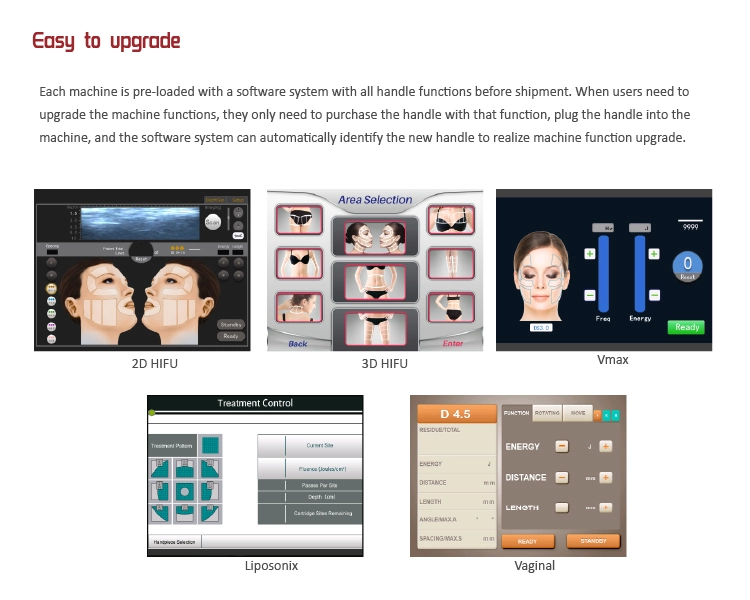How Many HIFU Sessions Are Needed for Optimal Skin Tightening Results?
Understanding HIFU and Its Benefits
What is HIFU?
High-Intensity Focused Ultrasound (HIFU) serves as a non-invasive method for skin tightening and lifting. In contrast to traditional surgical facelifts, HIFU operates on deeper skin layers without necessitating incisions or recovery periods. This procedure works by directing ultrasound waves to targeted regions, which in turn stimulates collagen production, resulting in firmer and more revitalized skin. Its effectiveness in diminishing signs of aging and the relatively swift application process have made it increasingly popular.
Advantages of HIFU Over Traditional Skin Tightening Methods
HIFU offers several benefits over traditional skin tightening methods. Firstly, it is a non-surgical procedure, which means there is no need for anesthesia or incisions, reducing the risks associated with surgery. Additionally, the recovery time is minimal, allowing patients to resume their daily activities almost immediately after the treatment. HIFU also provides natural-looking results by stimulating the body’s collagen production process. Moreover, it can be customized to target specific areas of concern, making it a versatile option for individuals seeking to improve their skin’s appearance.
Factors Influencing the Number of HIFU Sessions Needed
Age and Skin Condition
The number of HIFU sessions required for optimal results often depends on the individual’s age and skin condition. Younger individuals with mild to moderate skin laxity may require fewer sessions compared to older individuals with more significant sagging and wrinkles. The skin’s ability to produce collagen also decreases with age, so older patients might need additional treatments to achieve the desired tightening effect. It is crucial to have a thorough assessment with a qualified practitioner who can evaluate the skin’s condition and recommend an appropriate treatment plan.
Desired Results
Personal goals and expectations play a significant role in determining the number of HIFU sessions needed. Those seeking subtle improvements may find one or two sessions sufficient to achieve their desired outcome. However, individuals aiming for more dramatic changes might require additional treatments. Open communication with the treatment provider about expected results can help tailor the treatment plan. This ensures that patients achieve their aesthetic goals without undergoing more sessions than necessary.
Areas Being Treated
Different regions of the face and body might react differently to HIFU treatments, which can impact the number of sessions necessary. For example, the skin on the neck and beneath the chin might need more sessions compared to other regions because these areas could exhibit more noticeable laxity. Smaller, localized areas can often be treated successfully with fewer sessions, while larger or more resistant areas may require multiple treatments to achieve significant improvement. The provider will evaluate the specific regions that need tightening and suggest a session plan accordingly.
Typical Number of HIFU Sessions Required
General Guidelines
While individual needs may vary, there are some general guidelines regarding the number of HIFU sessions typically required. Most patients begin to see initial results after just one session, with full results becoming apparent in the months following the treatment as collagen production continues. On average, a regimen of one to three sessions spaced several months apart is usually recommended to achieve optimal results. Maintenance sessions every six months to a year can help sustain the tightness and lift achieved from the initial treatments.
Individual Variability
It is important to note that there is significant variability in how individuals respond to HIFU treatments. Factors such as genetics, lifestyle, and overall skin health can all influence the effectiveness of the treatment. Some individuals may respond exceptionally well to a single session, while others might require multiple sessions to see the same level of improvement. Personalized consultations and ongoing assessments are crucial for determining the ideal number of sessions needed for each patient. A tailored approach ensures that the treatment plan aligns with the patient’s unique skin characteristics and aesthetic goals.
What to Expect During and After HIFU Treatment
The Procedure Overview
Undergoing a HIFU procedure typically involves a thorough consultation with a trained practitioner who will assess your skin condition and discuss your aesthetic goals. On the day of the treatment, a topical anesthetic cream may be applied to ensure comfort. The practitioner then uses a specialized device to deliver focused ultrasound energy to targeted areas. This energy penetrates deep into the skin’s layers, stimulating collagen production. Each session can last between 30 minutes to an hour depending on the areas being treated.
Immediate Aftercare
Post-treatment care for HIFU is quite simple. Patients might notice mild redness, swelling, or tingling in the treated areas, which typically fades within a few hours. It’s recommended to apply soothing creams and avoid direct sun exposure or heavy makeup right after the procedure. Keeping the skin hydrated and using gentle skincare products helps in maintaining the results. As HIFU is non-invasive, most people can resume their normal activities immediately, making it an ideal choice for those with busy schedules.
Long-Term Results and Maintenance
The long-term results of HIFU are one of its most appealing aspects. While some initial tightening effects are noticeable immediately after the session, the full results develop over a period of 2-3 months as collagen regeneration takes place. To maintain the newly achieved skin firmness, periodic maintenance sessions every 6 to 12 months are usually recommended. This ensures that the skin continues to benefit from the collagen-stimulating effects of the HIFU treatment, keeping it smooth and lifted over time.
Case Studies: Real Results From Multiple Sessions
Success Stories From Diverse Age Groups and Conditions
Numerous case studies exhibit the transformative effects of HIFU across various age groups and skin conditions. For instance, older individuals with more pronounced skin laxity have reported significant tightening and lifting after two to three treatments, observing notable improvements in their skin texture and elasticity. Younger patients aiming for subtle enhancements have also shared positive outcomes with just one or two sessions, highlighting smoother and more refined skin. Real-life success stories underline the adaptability and efficacy of HIFU in catering to diverse needs, demonstrating its potential as a versatile skin rejuvenation solution.
Introducing Nubway and Its Innovative HIFU Solutions
About Nubway
Nubway is a pioneering company in the aesthetic medical device industry, renowned for its cutting-edge solutions designed to enhance skin health and beauty. Specializing in HIFU technology, Nubway has developed a range of advanced devices that cater to both practitioners and patients. With a commitment to excellence, Nubway ensures that each device is crafted to deliver optimal results safely and effectively.
Nubway’s Commitment to Quality and Safety in HIFU Treatments
Nubway places a paramount emphasis on quality and safety in all its HIFU treatments. Each device undergoes rigorous testing and adheres to stringent regulatory standards to guarantee that clients receive the highest level of care. Furthermore, Nubway invests in continuous research and development, always striving to improve the efficacy and safety of its technologies. This dedication to excellence is reflected in the positive feedback from both practitioners and patients who use Nubway’s HIFU solutions, attesting to their reliability and effectiveness in achieving desired skin-tightening outcomes.






